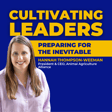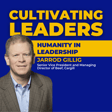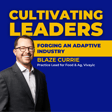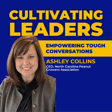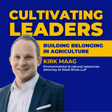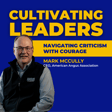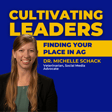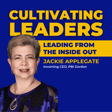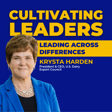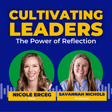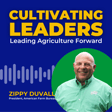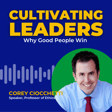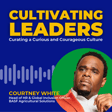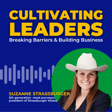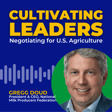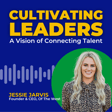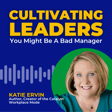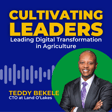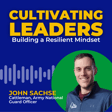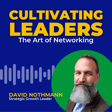
Curiosity, Culture and Crisis with Julie Anna Potts
What if real leadership isn’t about having the answers but rather about having the courage to ask better questions?
In this episode of the Cultivating Leaders Podcast, Nicole sits down with Julie Anna Potts, President and CEO of the Meat Institute, to explore what it takes to lead through transformation, uncertainty, and industry evolution. She shares her experience navigating a major organizational merger, uniting stakeholders around a bold sustainability strategy, and steering the meat industry through the chaos of the COVID-19 pandemic. Julie Anna shares practical advice on what makes leadership work when the pressure is high.
She dives into:
- Driving purposeful transformation: aligning business goals with sustainability, transparency, and consumer trust
- Shaping culture with trust and vision: Focusing on forward momentum rather than legacy divisions
- Leading through Uncertainty: championing simplicity, clarity, and empowerment through challenging times
Julie Anna shares practical advice on what makes leadership work when the pressure is high.
Connect with Julie Anna
- Connect on LinkedIn
- Visit the Meat Institute’s website - Here
- Book Recommendation: Race for Relevance by Mary Byers
- Book Recommendation: Start With Why by Simon Sinek
- Book Recommendation: The Four Obsessions of an Extraordinary Executive by Patrick Lencioni
Connect with AFA
- Follow us on LinkedIn
- Follow us on Instagram
- Like us on Facebook
- Follow us on TikTok
- Visit our Website
About The Cultivating Leaders Podcast
Real stories. Practical advice. Tangible growth. Join The Cultivating Leaders Podcast, brought to you by Agriculture Future of America, as we explore what it takes to lead in food, agriculture, and beyond. Whether you’re just starting out or leading at the highest level, this podcast is your go-to resource for leadership that matters. Listen now and start cultivating your leadership journey.
Don’t forget to follow/subscribe so you never miss another episode!
